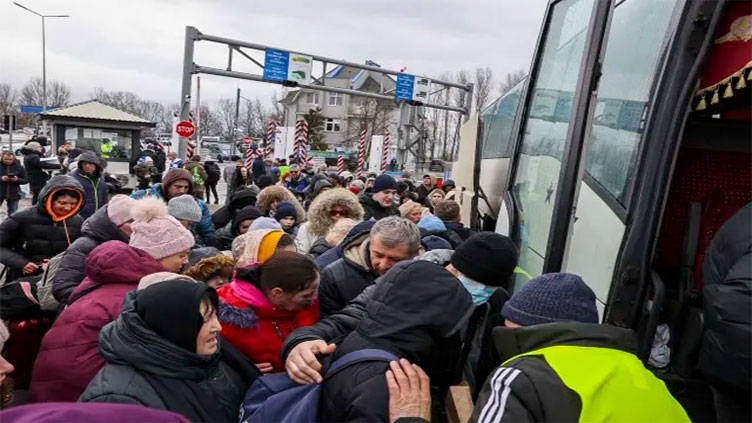Ukrainians torn by evacuation calls as Russian shells fall in northeast

World
Regional authorities announced a mandatory evacuation of civilians from near the Kupiansk front.
KUPIANSK (Reuters) - Ukrainians living in the northeastern Kupiansk district close to Russia's border on Sunday found themselves torn between the will to stay and protect what they have built and the desire to flee from Russian artillery fire.
"If you said the evacuation is going well," Dmytro Lozhenko, who runs a volunteer group that helps civilians flee the fighting, said on television, "It would sound like a bit of sarcasm."
Regional authorities announced a mandatory evacuation of civilians from near the Kupiansk front earlier this month due to daily Russian shelling.
The artillery toll on Sunday, Ukraine's prosecutor general said, began in the morning with an attack on the city of Kupiansk that sent a 45-year-old man to hospital in serious condition.
At 1:20 p.m., the second shelling of the city center injured three civilian men, including an emergency medical assistant, and a 20-year-old woman.
About three hours later, a third round injured a policeman. Homes, cars, garages, a business, a post office, a gas pipeline, and an educational institution were damaged, the prosecutor's office said.
It said casualty figures were still being clarified, but Oleh Synehubov, the Kharkiv regional governor, said in a post on Telegram that the morning shelling injured 11 civilians, seven of them seriously.
In an interview on Ukrainian television, Lozhenko said about 600 people had been evacuated from the area in the past 10 days, more than 120 of them children.
But what is now a mandatory evacuation, he said, may yet become a forced one, "at least for families with children and for people with reduced mobility, who cannot look after themselves."
In one village in Kupiansk district, he said, it was only after Russia bombed out almost two entire streets that people started to leave. "The worst thing about evacuation is that people have been living in this war for a long time, and many of them are very used to shelling."
It was tough to tell people in Kupiansk who had adapted to the situation that they would be safer "in shelters, dormitories in other cities."
Russia denies deliberately targeting civilians in its invasion of Ukraine, which has killed thousands, uprooted millions, and destroyed cities.
Russia says Ukrainian drones attack four regions
Russia said Ukrainian drones had attacked four separate regions in a flurry of attempted strikes on Sunday, injuring five people and forcing two of Moscow's airports to briefly divert flights.
Russia's Kursk, Rostov and Belgorod regions, all of which border Ukraine, reported attempted drone strikes, while Russia's defence ministry said it had jammed a Ukrainian drone in the Moscow region, forcing it to crash in an unpopulated area.
Russia's aviation watchdog said it had briefly halted flights to the city's Vnukovo and Domodedovo airports in response.
The Kursk region's governor said five people had been injured and a fire had broken out when a drone hit Kursk city's railway station.
Rostov's governor said no injuries or damage had occurred.
Later on Sunday, Russia's Defence Ministry said it had prevented two separate drone strikes on the Belgorod region, the border province most regularly attacked by Ukraine. The local governor said on Telegram that 12 airborne targets had been downed on the approaches to Belgorod city, before later saying only three drones had been shot down.
Ukrainian drone strikes both on border regions and on the Russian capital have become increasingly common in recent months, with repeated strikes on Moscow's financial district.
Russia said in May that two Ukrainian drones had tried to attack the Kremlin.
Ukraine typically does not comment on who is behind attacks on Russian territory, although officials have publicly expressed satisfaction over them.

